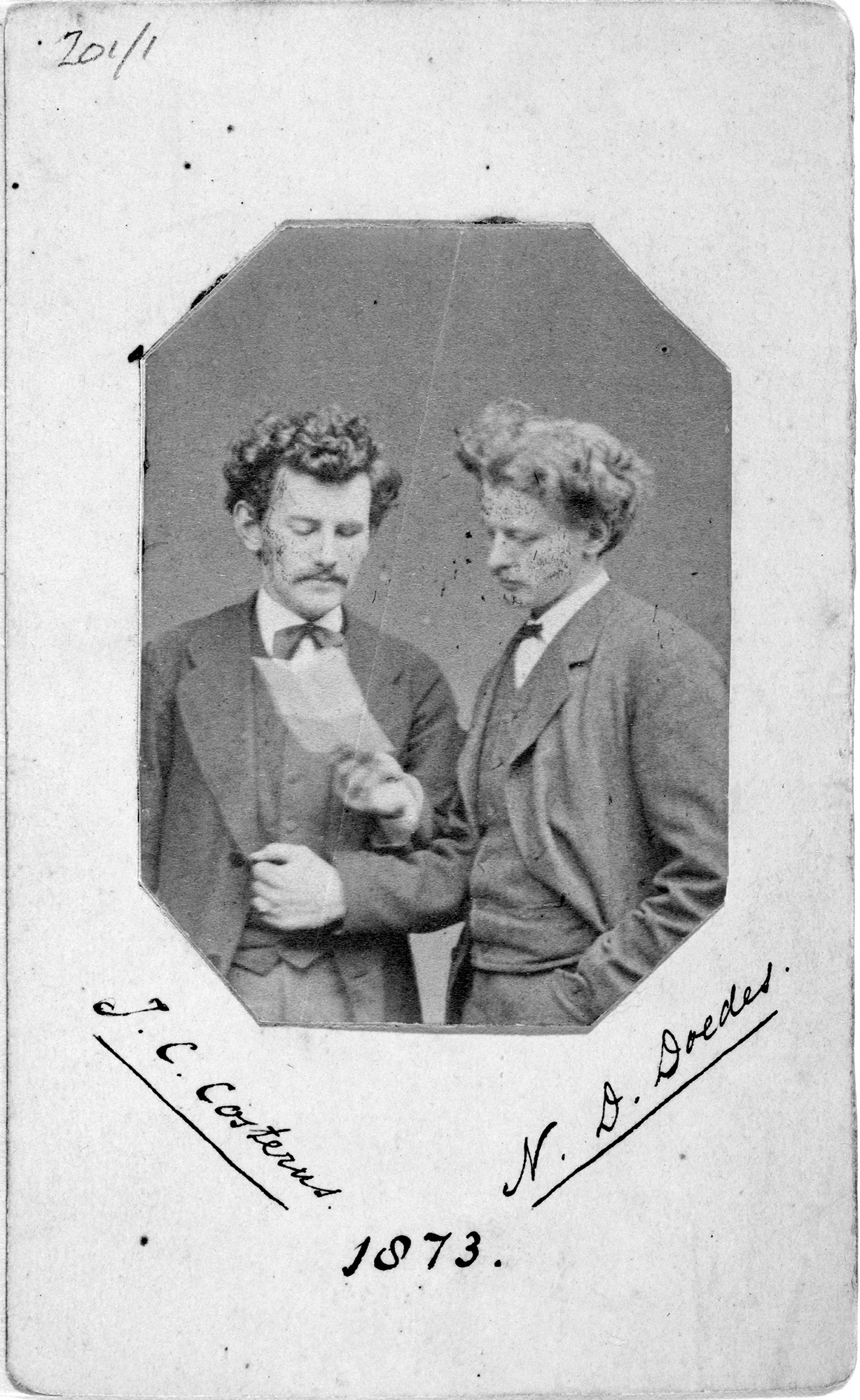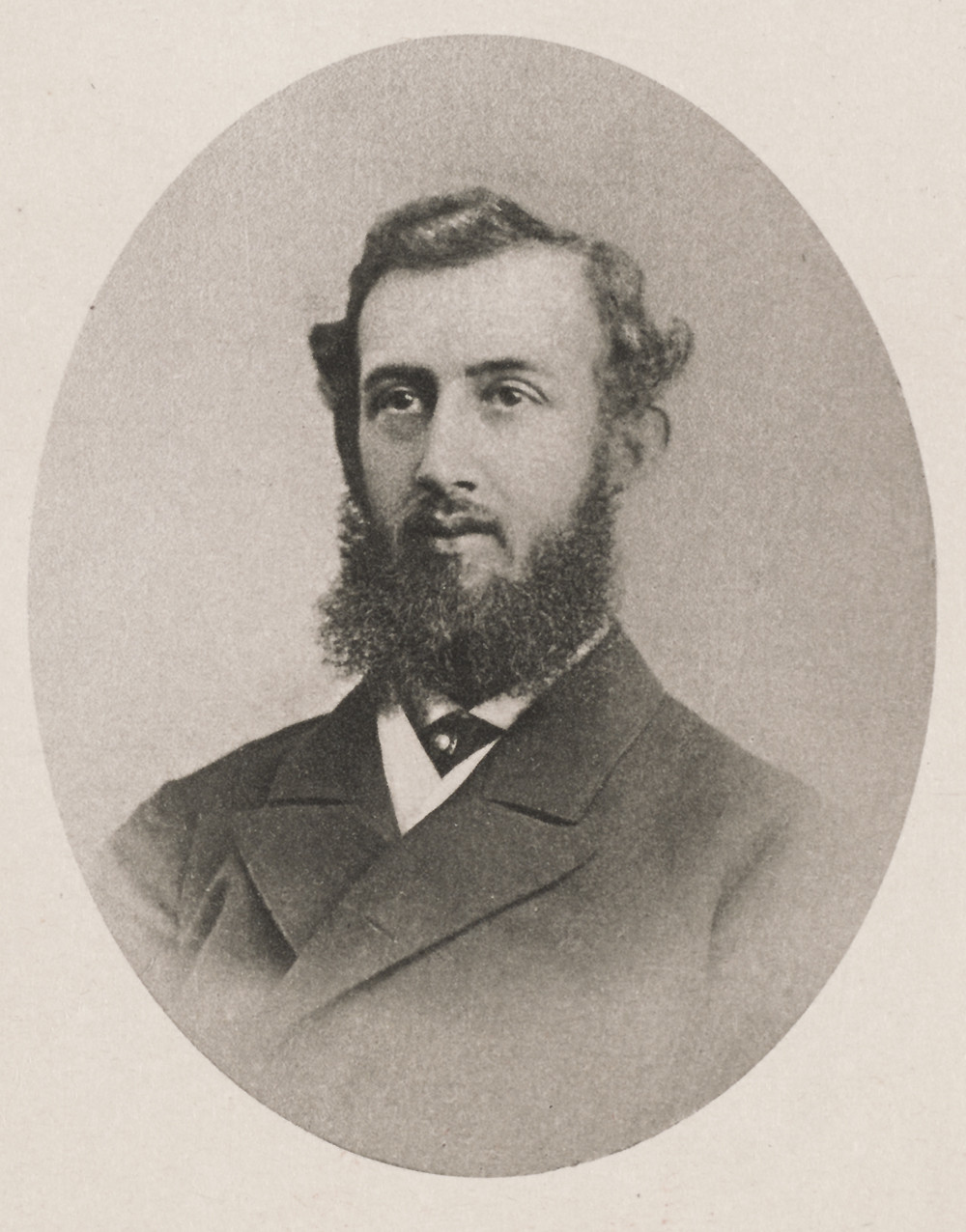From A. R. Wallace 9 July 1881
Summary
Enthusiasm for Henry George’s Progress and poverty. Considers it to rank with Adam Smith’s work. His own work on the land question [Land nationalisation (1882)].
| Author: | Alfred Russel Wallace |
| Addressee: | Charles Robert Darwin |
| Date: | 9 July 1881 |
| Classmark: | DAR 106: B154–5 |
| Letter no: | DCP-LETT-13238 |
Matches: 1 hit
- … historian, most famous for his History of civilisation in England ( Buckle 1857–61 ). Adam …
From A. R. Wallace 2 October 1865
Summary
Information concerning improvements in the Reader under new sponsorship.
Current reading and work [on pigeons for Ibis 1 (1865): 365–400, and catalogue of his collection of birds].
Book of travels postponed indefinitely.
| Author: | Alfred Russel Wallace |
| Addressee: | Charles Robert Darwin |
| Date: | 2 Oct 1865 |
| Classmark: | DAR 106: B27–30 |
| Letter no: | DCP-LETT-4906 |
Matches: 1 hit
- … Henry Thomas Buckle described the advance of civilisation in England. He linked scientific …
Darwin on race and gender
Summary
Darwin’s views on race and gender are intertwined, and mingled also with those of class. In Descent of man, he tried to explain the origin of human races, and many of the differences between the sexes, with a single theory: sexual selection. Sexual…
Matches: 2 hits
- … conflicts such as the American Civil War. Gender and civilisation In his early …
- … contemporaries, he nonetheless clung to a single scale of civilisation on which different peoples …

John Lubbock
Summary
John Lubbock was eight years old when the Darwins moved into the neighbouring property of Down House, Down, Kent; the total of one hundred and seventy surviving letters he went on to exchange with Darwin is a large number considering that the two men lived…
Matches: 2 hits
- … ( Descent p. 233). Lubbock’s Origin of civilisation , published in 1870 as Darwin was …
- … the result of degeneration from a natural state of civilisation. Darwin used Lubbock's counter …

The evolution of a misquotation
Summary
We gave you six things Darwin never said (despite what you may read elsewhere). None of the fake soundbites is more insidious than the first: It is not the strongest of the species that survives, nor the most intelligent that survives. It is…
Matches: 1 hits
- … as a discussion of Darwin’s views in a 1960s textbook, Civilisation Past and Present , was quoted …
4.53 Claud Warren, 'Outlines of Hands'
Summary
< Back to Introduction Claud Warren’s The Life-size Outlines of the Hands of Twenty-four Celebrated Persons was a ‘portfolio’, circulated in varying editions in 1881-2. It is an amateurish and rather eccentric work, without typographic letterpress –…
Matches: 1 hits
- … he would probably have been burnt at the stake. Although civilisation has advanced since then, and …
'An Appeal' against animal cruelty
Summary
The four-page pamphlet transcribed below and entitled 'An Appeal', was composed jointly by Emma and Charles Darwin (see letter from Emma Darwin to W. D. Fox, [29 September 1863]). The pamphlet, which protested against the cruelty of steel vermin…
Matches: 2 hits
- … was one of the noblest moral qualities possessed by human civilisation. However, Darwin was not …
- … cruelty can have been permitted to continue in these days of civilisation; and no doubt if men of …

Language: Interview with Gregory Radick
Summary
Darwin made a famous comment about parallels between changes in language and species change. Gregory Radick, Professor of History and Philosophy of Science at Leeds University, talks about the importance of the development of language to Darwin, what…
Matches: 2 hits
- … circumstances with no interesting technology, no advanced civilisation, speaking lowly languages. …
- … that all human peoples, no matter what the states of their civilisation, speak languages of more or …
4.58 'Simian, savage' . . . drawings
Summary
< Back to Introduction An anonymous satire in the Darwin archive has been descriptively titled ‘Simian, savage and savant’. Darwin on the right, elegantly dressed and carrying a top hat, represents the acme of civilisation. The central, nearly naked,…
Matches: 1 hits
- … dressed and carrying a top hat, represents the acme of civilisation. The central, nearly naked, …

Six things Darwin never said – and one he did
Summary
Spot the fakes! Darwin is often quoted – and as often misquoted. Here are some sayings regularly attributed to Darwin that never flowed from his pen.
Matches: 1 hits
- … Spot the fakes! Darwin is often quoted – and as often misquoted. Here are some sayings regularly …

St George Jackson Mivart
Summary
In the second half of 1874, Darwin’s peace was disturbed by an anonymous article in the Quarterly Review suggesting that his son George was opposed to the institution of marriage and in favour of ‘unrestrained licentiousness’. Darwin suspected, correctly,…
Matches: 2 hits
- … can co-exist with the most varied appliances of a complex civilisation.’ p. 77: ‘A deep debt …
- … can co-exist with the most varied appliances of a complex civilisation.’ The Review thus …
Religion
Summary
Design|Personal Belief|Beauty|The Church Perhaps the most notorious realm of controversy over evolution in Darwin's day was religion. The same can be said of the evolution controversy today; however the nature of the disputes and the manner in…
Matches: 1 hits
- … believes natural selection is doing more for progress of civilisation than Graham admits. …

Darwin’s reading notebooks
Summary
In April 1838, Darwin began recording the titles of books he had read and the books he wished to read in Notebook C (Notebooks, pp. 319–28). In 1839, these lists were copied and continued in separate notebooks. The first of these reading notebooks (DAR 119…
Matches: 2 hits
- … on Navvies [C. M. Marsh] 1858] Buckle History of Civilisation [Buckle 1857] Feb. 28 …
- … practice; and its moral influence on the progress of civilisation . Edinburgh: William and …

Race, Civilization, and Progress
Summary
Darwin's first reflections on human progress were prompted by his experiences in the slave-owning colony of Brazil, and by his encounters with the Yahgan peoples of Tierra del Fuego. Harsh conditions, privation, poor climate, bondage and servitude,…
Matches: 1 hits
- … selection having done and doing more for the progress of civilisation than you seem inclined to …

Darwin in letters, 1860: Answering critics
Summary
On 7 January 1860, John Murray published the second edition of Darwin’s Origin of species, printing off another 3000 copies to satisfy the demands of an audience that surprised both the publisher and the author. It wasn't long, however, before ‘the…
Matches: 1 hits
- … paper giving a Darwinian view of the development of Western civilisation. Wilberforce, Hooker …

Darwin's in letters, 1873: Animal or vegetable?
Summary
Having laboured for nearly five years on human evolution, sexual selection, and the expression of emotions, Darwin was able to devote 1873 almost exclusively to his beloved plants. He resumed work on the digestive powers of sundews and Venus fly traps, and…
Matches: 1 hits
- … all over their bodies, which had receded with the advance of civilisation and good breeding ( …

Darwin in letters, 1875: Pulling strings
Summary
‘I am getting sick of insectivorous plants’, Darwin confessed in January 1875. He had worked on the subject intermittently since 1859, and had been steadily engaged on a book manuscript for nine months; January also saw the conclusion of a bitter dispute…
Matches: 1 hits
- … to the sterility of many wild animals when made captive. The civilisation of savages & the …

Darwin in letters, 1881: Old friends and new admirers
Summary
In May 1881, Darwin, one of the best-known celebrities in England if not the world, began writing about all the eminent men he had met. He embarked on this task, which formed an addition to his autobiography, because he had nothing else to do. He had…
Matches: 1 hits
- … selection had not contributed greatly to the progress of civilisation was contested by Darwin, who …




